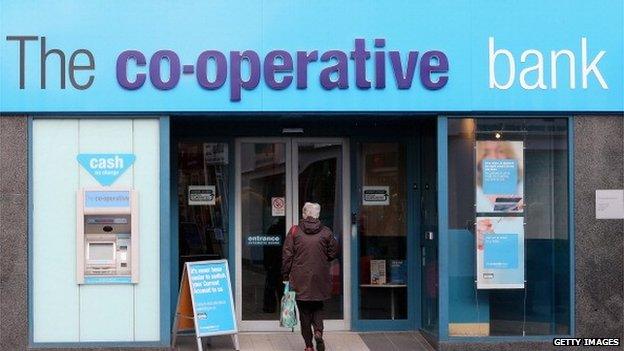Co-operative Bank's annual losses more than double
- Published
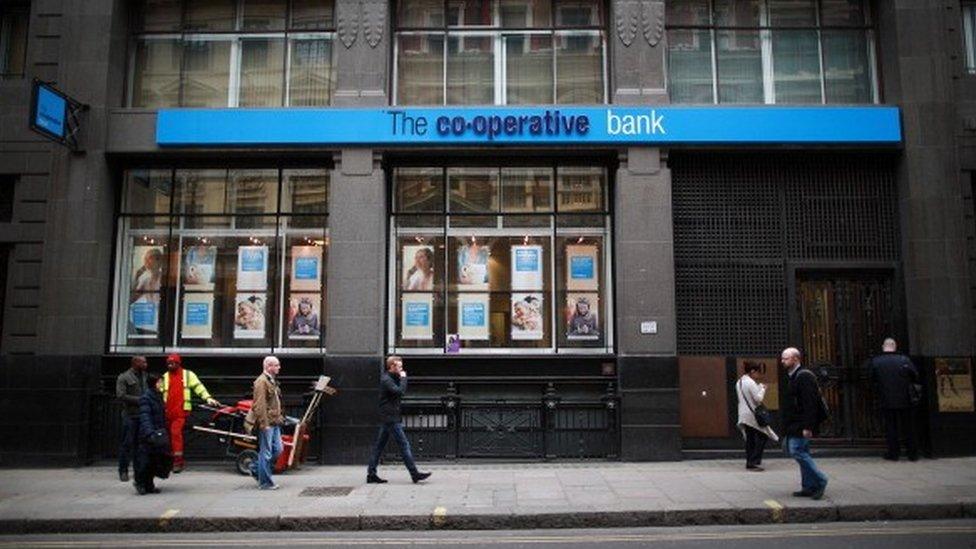
Co-operative Bank's annual pre-tax losses have more than doubled to £610m, up from £264m in 2014.
Conduct and legal risk charges increased to £193m, because of higher provisions for the mis-selling of payment protection insurance.
The bank almost collapsed in 2013, after bad property loans contributed to a £1.5bn hole in its finances.
Since then, it has taken action to shore up its finances and says it is much "stronger" than a year ago.
It said it had improved its balance sheet and reduced its operating costs through 58 branch closures and staff cuts.
Road to recovery?
The Co-op Bank was the only lender in 2014 to fail the Bank of England's key test of capital strength, which assesses the ability of major UK lenders to withstand another financial crisis.
Chairman Dennis Holt said the statutory loss and low-interest-rate environment meant the bank would take a year longer than expected to reach the levels of capital strength required by regulators.
He said the bank had disposed of more than half of its higher-risk mortgages in its Optimum portfolio, which was done to protect capital reserves.

Analysis: Brian Milligan, personal finance reporter
At first sight, the doubling of losses at the Co-op looks like further depressing news for a bank where "catastrophe" became a routine word.
The discovery of black holes in the accounts, a failure to meet Bank of England stress tests, announcements that were misleading, poor governance and even a drugs scandal are all part of recent history.
The continuing pay-outs for PPI mis-selling have not helped its battle to return to profitability.
But riskier parts of the business have now been sold off, customers are not deserting like they were, and the bank's capital base is more solid.
In the bank's core operations, losses have been cut from £79m to £15m.
Niall Booker, the boss, has promised to make a profit by the end of next year.
All those hedge fund managers that now own the bank will be willing him to triumph.

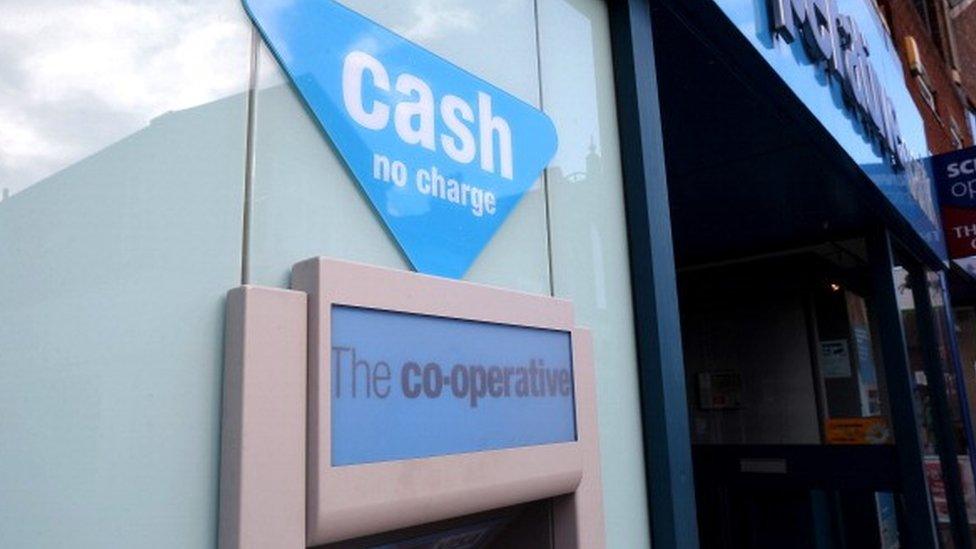
58 branches were shut in 2015 and there are plans to cut 54 this year
Niall Booker, chief executive officer, said: "Whilst the Bank as a whole will report a loss before tax in 2016 and 2017, we expect a return to operating profitability in the core bank before the end of 2017."
Its core bank operation saw operating losses of £15m in 2015, down from £79m the previous year.
The bank has managed to largely retain it retail current account holders and at the end of 2015 had around 4.1 million customers.
Christopher Wheeler of Atlantic Equities said: "The Co-op Bank is in an extremely competitive market. The events of the last few years have tarnished its reputation and put off customers previously attracted by its history and ethical banking policy. It needs to have something else to offer to bring in meaningful returns in the future."
A group of hedge fund investors bought a majority share in the bank in 2013, leaving the Co-operative Group with just 20% of it.
Succession
There have been reports that the bank has started to look for a replacement for Mr Booker, whose contract is due to finish at the end of the year.
Mr Booker told journalists on Friday that he enjoyed the challenge of the "triage phase" of dealing with a distressed lender, but gave no firm indication of his plans.
"You don't get trauma surgeons who treat you forever," he added.
The bank's chairman, Mr Holt, would also not be drawn on the subject.
- Published15 January 2016
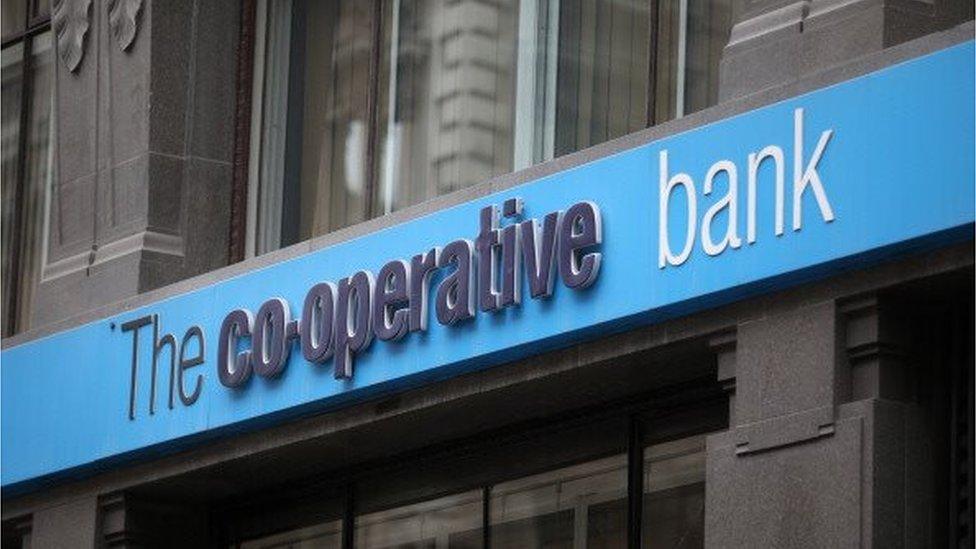
- Published9 February 2016
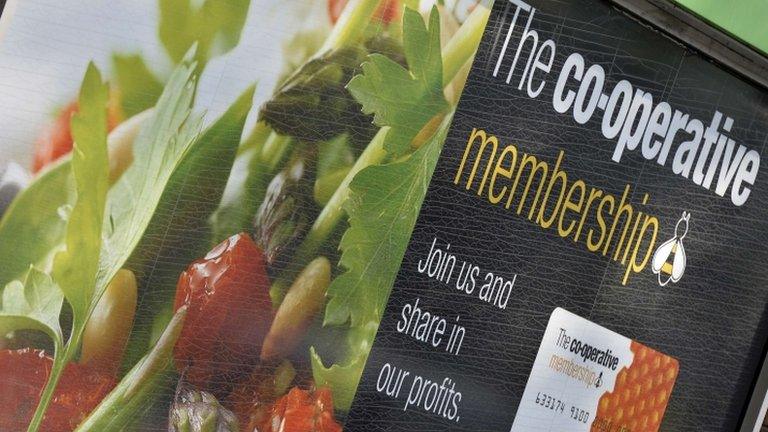
- Published7 January 2016
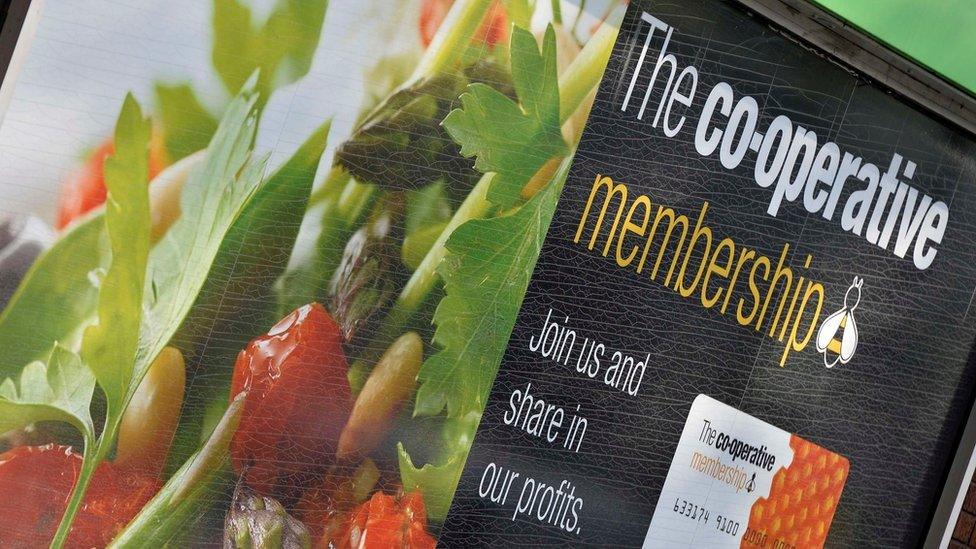
- Published4 March 2016

- Published28 March 2016

- Published11 August 2015
